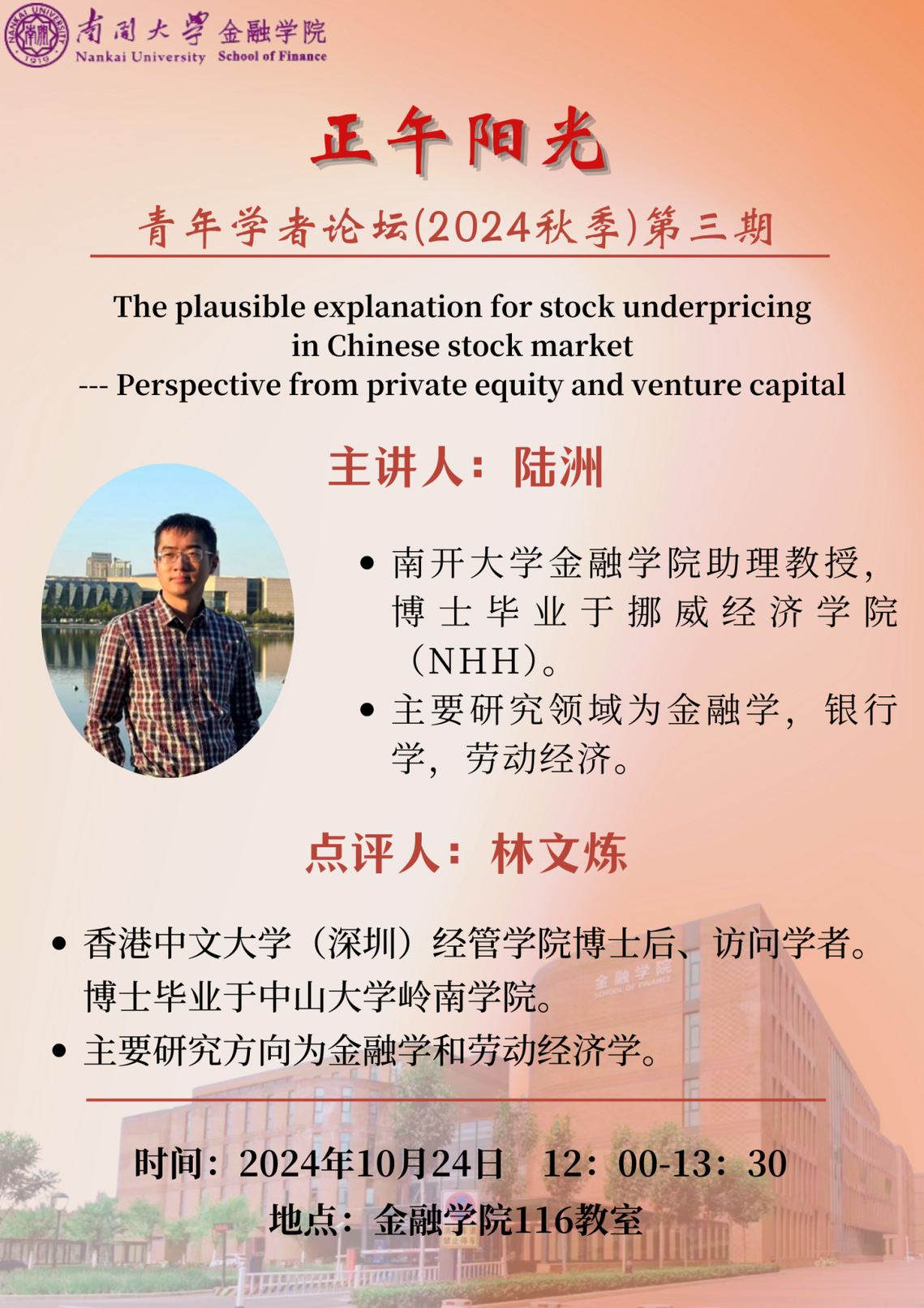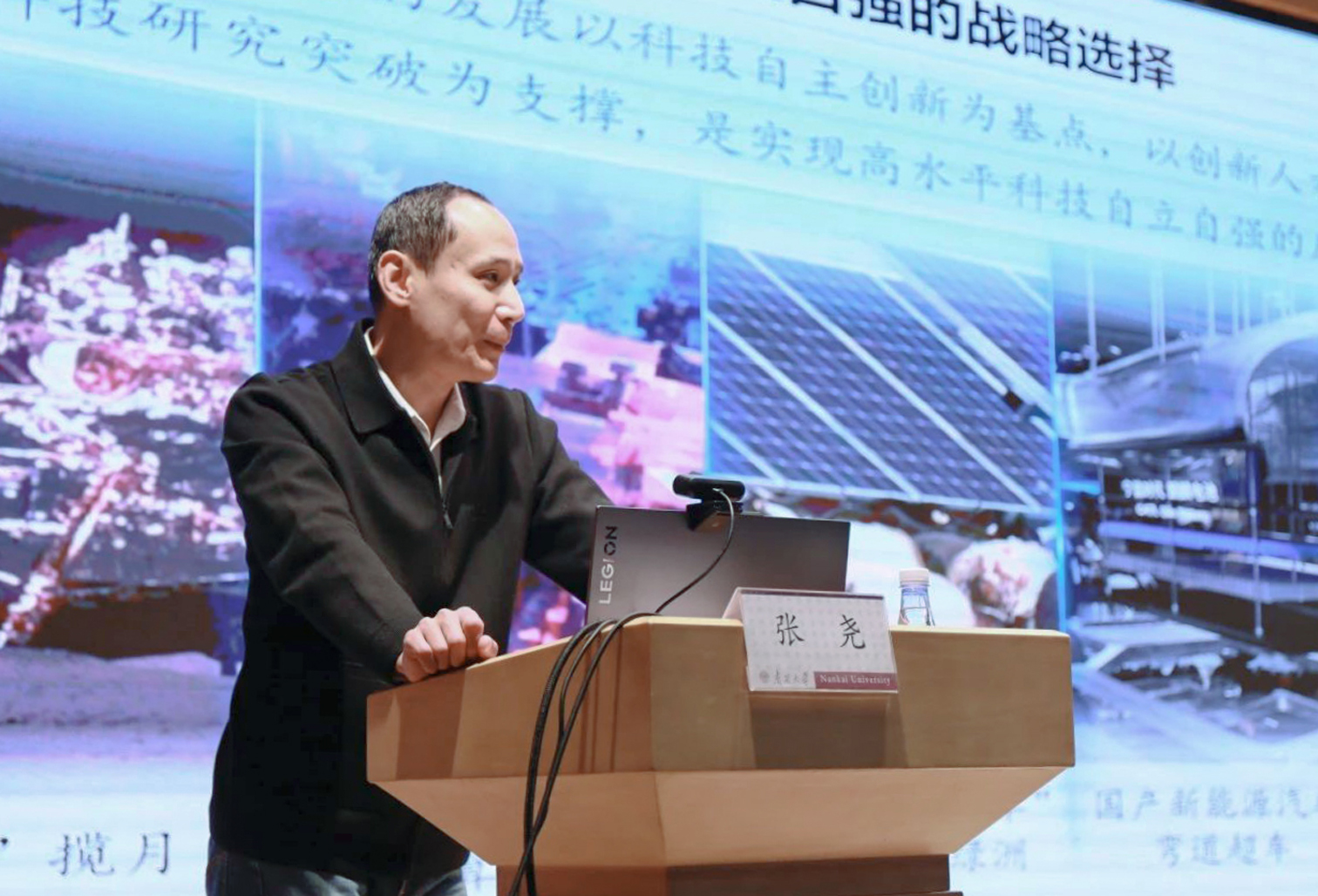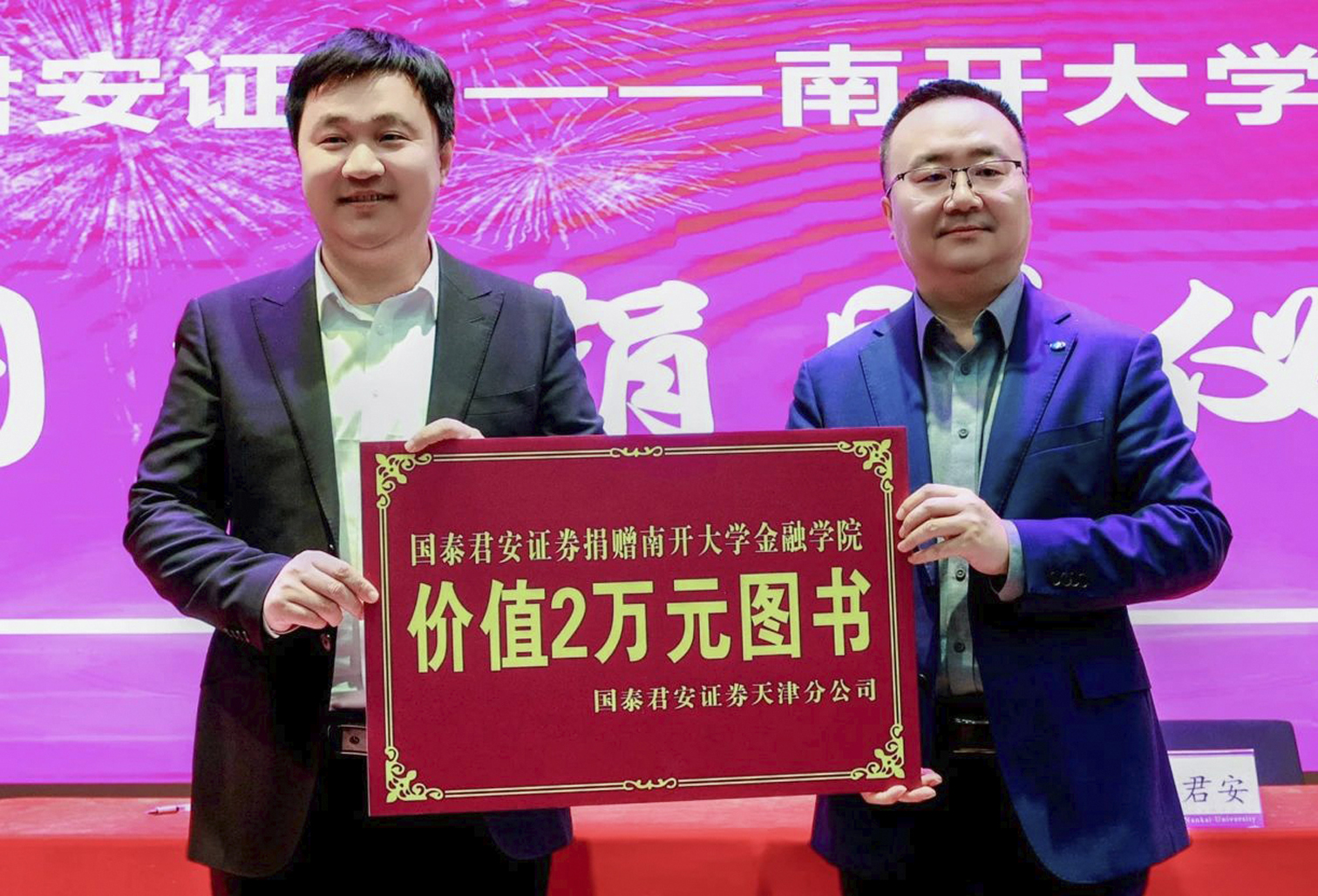活动预告 | 正午阳光——青年学者论坛(2024秋季)第三期
“正午阳光——青年学者论坛”是伟德国际1946源于英国定期举办的以院内师生参与为主的学术交流活动,为全院专家学者之间、师生之间、伟德国际1946与国际国内学术界之间提供了难得的交流机会。本学期“正午阳光”论坛初心不改,扬帆远航再出发,致力于营造学院学校科研氛围,推动师生学术科研水平不断提升!
2024年秋季学期 “正午阳光——青年学者论坛”第三期活动安排如下:
讲座题目:The plausible explanation for stock underpricing in Chinese stock market --- Perspective from private equity and venture capital
主讲人:陆洲
伟德国际1946源于英国助理教授。博士毕业于挪威经济学院(NHH)。
研究领域:金融学,银行学,劳动经济。
点评人:林文炼香港中文大学(深圳)经管学院博士后、访问学者。博士毕业于中山大学岭南学院。研究兴趣:金融学和劳动经济学。论文发表于《经济学(季刊)》、Journal of International Financial Markets, Institutions & Money、China Economic Review、Pacific-Basin Finance Journal等期刊。主持国家自然科学基金青年项目、中国博士后科学基金面上项目。
讲座时间:2024年10月24日(周四)12:00 - 13:30
讲座地点:伟德国际1946源于英国116教室
内容摘要
China's stock market pricing has always been an interesting research direction for scholars around the world. From the perspective of private equity and venture capital, this article explores why the share prices of most IPO companies plummet after they go public. We find that the main problem is that the PE/VC market in China is immature, and the participants in the primary and secondary markets are not the same, which leads to conflicting goals among market participants. Institutional investors typically invest in companies when they are more mature in the pre-IPO period and then reap the benefits from retail investors after listing. To meet the investment needs of institutional investors, pre-listing companies often window dress their operating conditions through earnings management and collude with book builders to raise the company's stock price in the pre-IPO period. In the secondary market, institutional investors liquidate their stocks, leaving retail investors to bear the losses. We found that the more financing rounds a company has before listing and the longer the waiting time for an IPO, the more prone it is to financial fraud. At the same time, institutional investors carry out a large number of equity pledge operations to cash out, and this effect is more pronounced in companies with more financing rounds before listing. The Chinese government uses a lock-up period policy to curb this situation. Although the lock-up period can prevent institutional investors from selling shares during the listing period to cash out, there are loopholes in the lock-up period policy. Institutional investors can cash out using equity pledge contracts. We found that companies with more financing rounds before listing are more likely to engage in financial fraud and equity pledges after the government enacts and strengthens the lock-up period policy.









